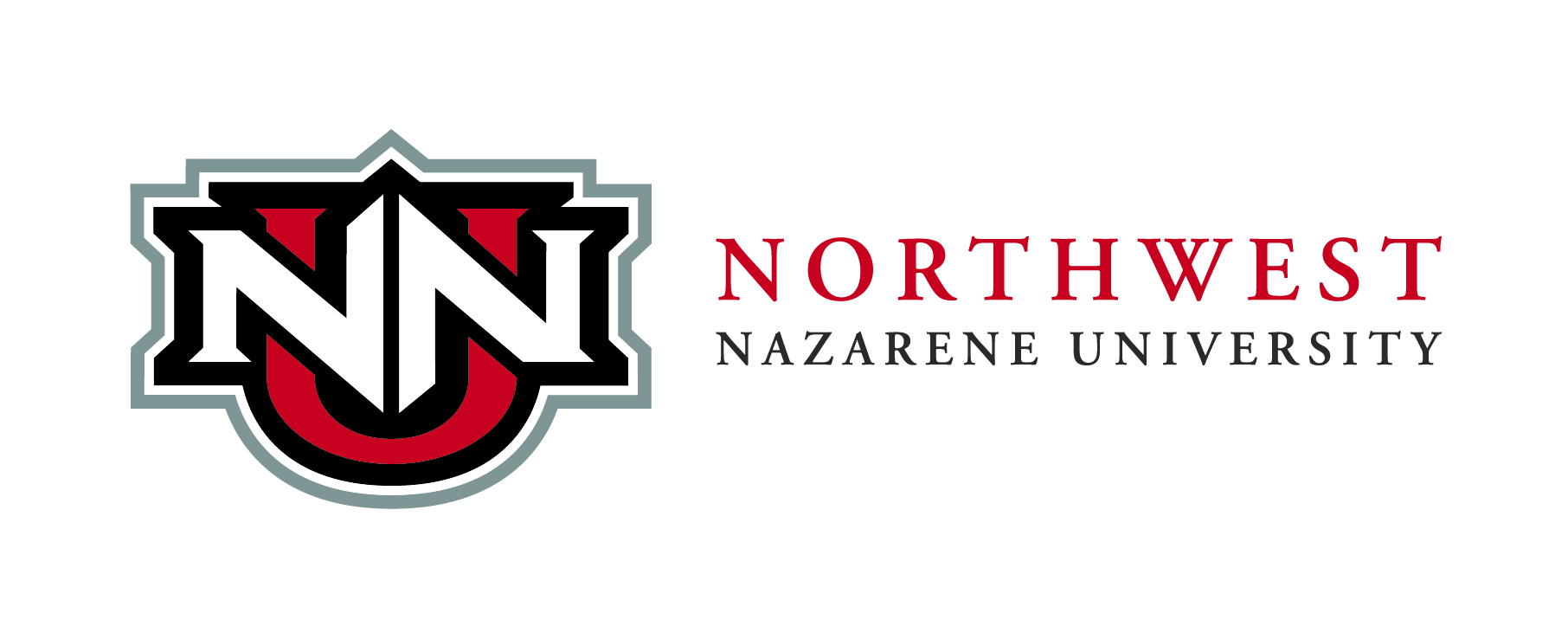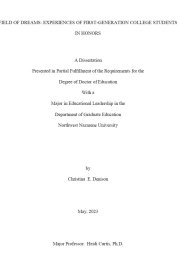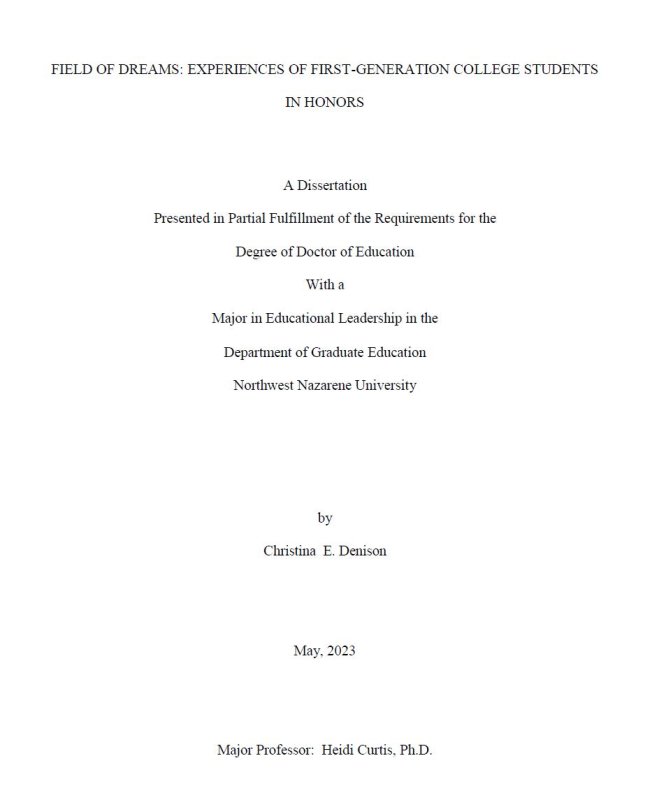- Resource Types
- Resource Languages
- Institutional Repository
 Visit the home page
Visit the home page
About Site Language
WHDL is viewable in multiple languages. Use the pull-down menu to select a language to view the site.
I changed my language, but I’m still seeing resources in the other languages?
If a resource or text has not been translated into your selected language, it will appear in the initially added language. We are always looking for help translating these resources. If you can help, contact us!
WHDL - 00018803


click to copy
Denison, C (n.d.). Field of dreams: Experiences of first-generation college students in honors .
Denison, ChristinaField of dreams: Experiences of first-generation college students in honors . , n.d.
Denison, ChristinaField of dreams: Experiences of first-generation college students in honors . , n.d.
Denison, ChristinaField of dreams: Experiences of first-generation college students in honors . , n.d.
First-generation college students are underrepresented within honors programs and
colleges, and their retention and persistence rates lag far behind their continuing-generation
peers. Students in honors programs and colleges have higher retention and persistence rates than non-honors students. The best practices within honors have shown to include the best practices that increase first-generation college student persistence. Studies exploring the experiences of first-generation college students in honors are crucial for understanding this population and guiding honors professionals in developing strategies to support first-generation college student persistence and success. This qualitative study explored the
experiences of six first-generation college students participating in honors at four-year
universities in the United States. The personal stories and experiences of the participants
were collected and restoried using a narrative inquiry approach and semi-structured
interviews. Narrative inquiry allowed for a holistic understanding of the participants’ experiences. The analysis of the semi-structured interviews revealed three distinct themes
to provide a deeper understanding of their experiences. The themes of relationships,
academic self-concept, and influences on the sense of belonging show how the study
participants navigated the challenges and opportunities in honors. The participants also
offered insight into the social and academic factors that impacted their experiences. The
findings underscore the importance of promoting student opportunities to develop
relationships with faculty, staff, and students.
This material is used by permission of the rightsholder in accordance with the terms of the relevant content release. As a user, you have permission to use this content and download a copy for non-commercial use only. Downloading multiple quantities of this resource is expressly forbidden.
155 Resources
1993
2017
2018